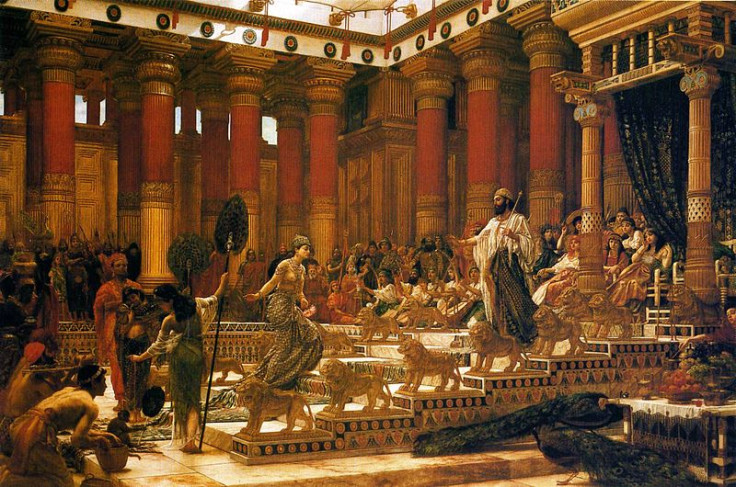Fate of King Solomon's Ark of Covenant Revealed in Hebrew Text

The fate of King Solomon's treasures including the Ark of the Covenant has been revealed in a newly translated Hebrew text.
According to "Treatise of the Vessels" (Massekhet Kelim in Hebrew), the fate of the contents of the First Temple will be revealed at the Second Coming, researchers have said.
James Davila, a professor at the University of St. Andrews, claims the Hebrew text says the treasures shall not be revealed until the day of the coming of the Messiah son of David", Live Science reports.
The Hebrew bible says that King Solomon's Temple was plundered and burned by the Babylonian King Nebuchadnezzar II over 2,500 years ago. In it was the Ark of the Covenant, a chest that was said to have held the tablets that the 10 commandments were inscribed on.
Davila said: "[The] treasures were concealed by a number of Levites and prophets. Some of these (treasures) were hidden in various locations in the Land of Israel and in Babylonia, while others were delivered into the hands of the angels Shamshiel, Michael, Gabriel and perhaps Sariel."
According to Davila, the treatise describes the treasures. The oldest confirmed example of it is from a Emek Halachah, a book published in Amsterdam in 1648. Davila is the first to translate the text in full into English.

Describing the treasure, the treatise says: "Seventy-seven tables of gold, and their gold was from the walls of the Garden of Eden that was revealed to Solomon, and they radiated like the radiance of the sun and moon, which radiate at the height of the world."
Speaking to Live Science, he said: "The writer draws on traditional methods of scriptural exegesis [interpretation] to deduce where the treasures might have been hidden, but I think the writer was approaching the story as a piece of entertaining fiction, not any kind of real guide for finding the lost Temple treasures."
"I suspect the author collected various legends without too much concern about making them consistent."
Davila also comments on the similarity between the treatise and the Copper Scroll, one of the Dead Sea Scrolls found near the site of Qumran in the West Bank that also discusses the location of treasure.
The professor believes this may be part of a tradition of recording important information on metal.
"My guess is that whoever wrote the Treatise of Vessels came up with the same idea [of writing a treasure list on metal] coincidentally on their own, although it is not unthinkable that the writer knew of some ancient tradition or custom about inscribing important information on metal."
© Copyright IBTimes 2025. All rights reserved.






















